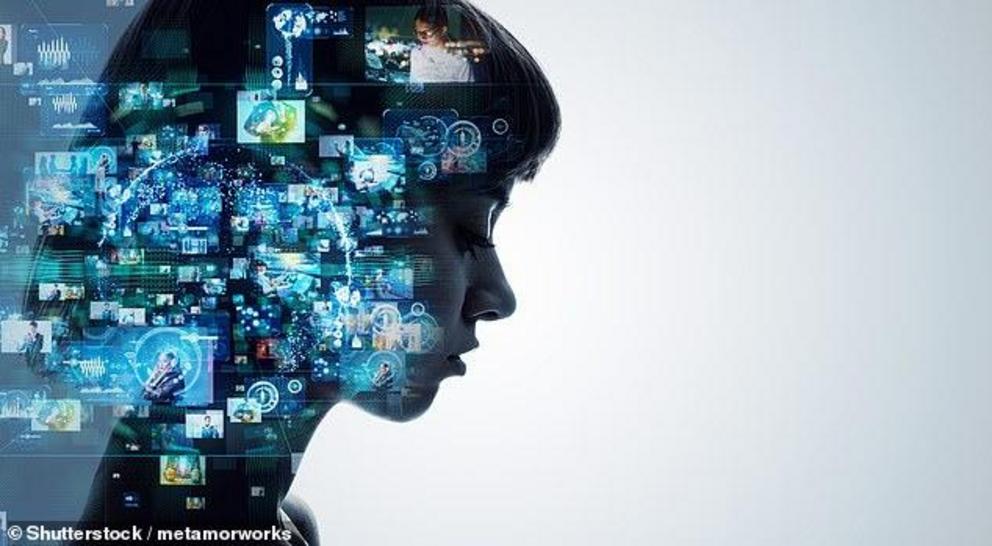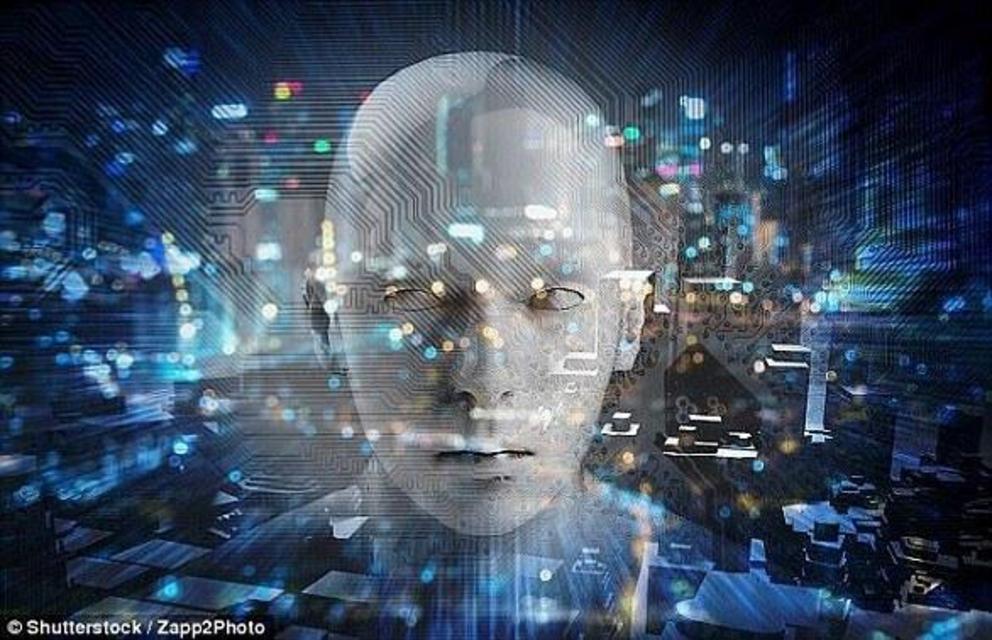Workers welcome their robot overlords! More than half of employees prefer to interact with AI than their manager - and feel it does a better job
- Global study surveyed more than 8,000 employees, HR members and managers
- Found 64% prefer to interact with robots, rather than their human manager
- More than 80% also noted that AI does a better job than their human boss
- But employees prefer managers to understand their feelings and to coach them
Employees have more trust in robots than they do their human managers, a global study has revealed.
A survey across 10 countries have found that 64 percent prefer to seek advice or guidance from artificial intelligence over their boss and 82 percent feels it does a better job.
The majority of workers are also optimistic, excited and grateful about having robot co-workers and nearly a quarter reported having a loving and gratifying relationship with the intelligent-style software.
 A survey across 10 countries have found that 64 percent prefer to seek advice or guidance from artificial intelligence over their boss and 82 percent feels it does a better job
A survey across 10 countries have found that 64 percent prefer to seek advice or guidance from artificial intelligence over their boss and 82 percent feels it does a better job
The study was conducted by the US technology company Oracle and research firm Future Workplace.
The team surveyed 8,370 employees, managers and HR leaders and 'found that AI has changed the relationship between people and technology at work and is reshaping the role HR teams and managers need to play in attracting, retaining and developing talent.'
Jeanne Meister Founding Partner, Future Workplace said, 'Our 2019 results reveal that forward looking companies are already capitalizing on the power of AI.'
'As workers and managers leverage the power of artificial intelligence in the workplace, they are moving from fear to enthusiasm as they see the possibility of being freed of many of their routine tasks and having more time to solve critical business problems for the enterprise.'
 It was also found that more men (56 percent than women (44 percent) have passed over their manager for AI. And 82 percent of people think robots can do things better than their managers
It was also found that more men (56 percent than women (44 percent) have passed over their manager for AI. And 82 percent of people think robots can do things better than their managers
The team administered an online survey to full-time employees ranging from 18-74 years old across 10 different countries.
And included in the study was a variety of HR leaders, managers and employees.
After combing through answers and combing the data, the team found that 64 percent of people would trust a robot more than their manager and half have turned to a robot instead of their manager for advice.
Workers in India (89 percent) and China (88 percent) are more trusting of robots over their managers, followed by Singapore (83 percent), Brazil (78 percent), Japan (76 percent), UAE (74 percent), Australia/New Zealand (58 percent), U.S. (57 percent), UK (54 percent) and France (56 percent).
It was also found that more men (56 percent than women (44 percent) have passed over their manager for AI.
And 82 percent of people think robots can do things better than their managers.
HOW DOES ARTIFICIAL INTELLIGENCE LEARN?
AI systems rely on artificial neural networks (ANNs), which try to simulate the way the brain works in order to learn.
ANNs can be trained to recognise patterns in information - including speech, text data, or visual images - and are the basis for a large number of the developments in AI over recent years.
Conventional AI uses input to 'teach' an algorithm about a particular subject by feeding it massive amounts of information.
 AI systems rely on artificial neural networks (ANNs), which try to simulate the way the brain works in order to learn. ANNs can be trained to recognise patterns in information - including speech, text data, or visual images
AI systems rely on artificial neural networks (ANNs), which try to simulate the way the brain works in order to learn. ANNs can be trained to recognise patterns in information - including speech, text data, or visual images
Practical applications include Google's language translation services, Facebook's facial recognition software and Snapchat's image altering live filters.
The process of inputting this data can be extremely time consuming, and is limited to one type of knowledge.
A new breed of ANNs called Adversarial Neural Networks pits the wits of two AI bots against each other, which allows them to learn from each other.
This approach is designed to speed up the process of learning, as well as refining the output created by AI systems.
When asked what robots can do better than their managers, survey respondents said robots are better at providing unbiased information maintaining work schedules, problem solving and managing a budget
However, employees did note that their managers were better at understanding their feelings, coaching them and creating a work culture.
Emily He, SVP, Human Capital Management Cloud Business Group, at Oracle said,
'The latest advancements in machine learning and artificial intelligence are rapidly reaching mainstream, resulting in a massive shift in the way people across the world interact with technology and their teams.'
'As this study shows, the relationship between humans and machines is being redefined at work, and there is no one-size-fits-all approach to successfully managing this change.
'Instead, organizations need to partner with their HR organization to personalize the approach to implementing AI at work in order to meet the changing expectations of their teams around the world.'
Video can be accessed at source link below.
